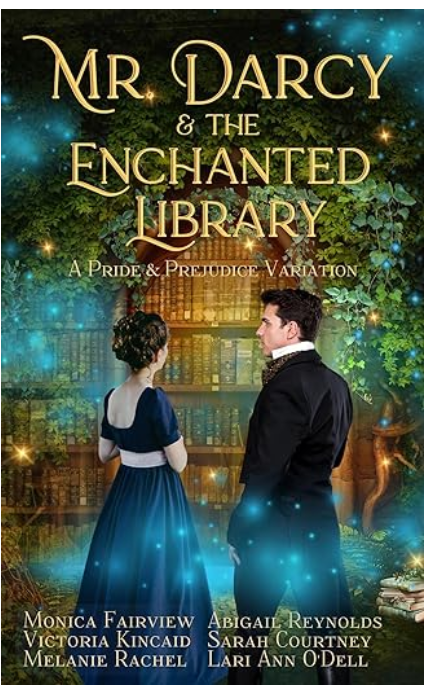Darcy’s Honor is available in paperback at Amazon! Here is the link: https://www.amazon.com/Darcys-Honor-Pride-Prejudice-Variation/dp/0997553065/ref=sr_1_2?ie=UTF8&qid=1492189671&sr=8-2&keywords=darcy%27s+honor
Below is an excerpt from Darcy’s Honor in which Darcy helps Elizabeth down from the back of a horse after encountering her on a road near Longbourn:
She clambered awkwardly down from the saddle and stood on unsteady legs as she smoothed her skirts around her ankles. Her whole body shook. “Are you unharmed, Miss Bennet?” he inquired, running his eyes up and down her form.
She gave a shaky laugh, and Darcy could not help admiring her fortitude. Many women of his acquaintance would have swooned after such an episode. “Yes, I thank you for your timely intervention. I believe the only damage is to my dignity. I assure you that I do not customarily ride a horse like a sack of potatoes.”
Darcy blinked. “Undignified” was not one of the adjectives he had thought to apply to the sight of Elizabeth on the back of a horse, particularly not with so much leg revealed. “Of course. I would imagine you are a far superior rider with a proper sidesaddle.”
She brushed errant strands of hair from her face. “You are very kind to make such an assumption given the display you just witnessed.”
How odd to be discussing Elizabeth’s horsemanship when something was so obviously wrong. How had she acquired a horse, and why was she riding at such speeds?
“On the contrary,” Darcy returned. “It requires great skill to remain atop a strange horse under such circumstances. I am quite impressed.”
She regarded him with narrowed eyes for a moment, as if assessing his sincerity. Finally, she said, “I thank you for the compliment, sir.”
Would she think him impertinent to inquire about the circumstances of her ride? But surely the unusual situation cried out for some kind of explanation. “You were in quite a hurry. Is there an emergency?” he asked.
She glanced over her shoulder at the road behind her. “No, I do not believe so.”
This ambiguous response left Darcy at something of a loss. Why had she ridden so fast if there was no urgency? And why did she watch the road so intently? Finally, he settled on a different but not unrelated line of inquiry. “I did note that you departed the church on foot.”
He had meant his words as a light-hearted jest but cursed himself for a fool when he saw the blood drain from Elizabeth’s face. He cleared his throat. “Does, er, the Longbourn stable boast such a creature?” he asked, knowing full well she had not had sufficient time to reach her home.
“No…” Her face was now quite red. “I…er…that is, I—”
“Borrowed the mount?” he inquired as though a simple explanation would work. He reached out and took her gloved hand in his. “Please be assured, Miss Bennet, I only wish to help.”
Her eyes widened as if she had not expected such an offer from him, although he could not imagine why. But he was then rewarded with a small smile and a slight loosening of the tension in her shoulders. She let out a long breath. “No, indeed. The horse actually is the property of”—she cleared her throat —“Viscount Billington.”
“Billington!” Darcy echoed in surprise, releasing her hand. That was the last name he expected to hear. “He lent you his mount?” Was Darcy wrong in assuming she wished to have no connection with the man?
“He did not precisely loan it to me—” She covered her mouth with her hand. “Although I am quite concerned he could label me a horse thief. I must be sure the beast is returned to him.” She pressed her lips together into a white line. “Perhaps I should not have— Oh, what a terrible tangle I have created!”
Suddenly, the various oddly shaped pieces of the puzzle fell into place. He took a step closer to her. “Billington accosted you on the road?” His voice was a low growl.
She nodded miserably but lifted her chin and met his gaze. “The horse was the only way to escape.”
To Darcy’s own surprise, he began to laugh. “Serves him right! You should keep the animal.”
Elizabeth’s eyes were wide, and her mouth hung open. Darcy could only imagine the expression on Lord Henry’s face when Elizabeth jumped into his horse’s saddle. Darcy laughed even harder.
Her brows drew together. “Did you, perhaps, help Mr. Lehigh finish off the communion wine?”
Thinking of the vicar sobered Darcy, and he shook his head. “Miss Bennet, to be clear, I believe you should be commended. A lady should always have a horse at hand when encountering such a man,” Darcy said.



